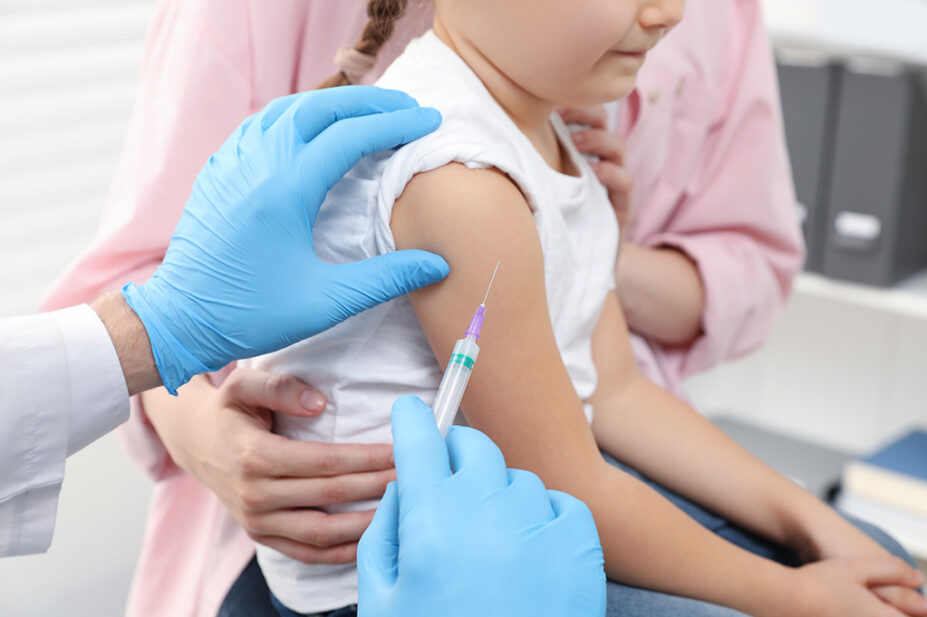
Shutterstock.com
This week, The Pharmaceutical Journal has reported on exclusive findings about pharmacists’ support for assisted dying, the House of Lords committee evidence session around the role of pharmacists and drugs in this process, as well as plans to improve access to rare disease therapies.
In Wales, a community pharmacy campaign has been launched to ease winter pressures on the NHS. While in Scotland, community pharmacies will receive £500,000 in extra funding to support pharmacist prescribing services under Pharmacy First Plus.
We have also published a report from our roundtable on the NHS ten-year health plan, which identified that effective horizon scanning is needed to establish what the pressures on the health service would be in a decade’s time and highlighted that pharmacy organisations must work together to help shape the future.
Read on for more health news and research you may have missed this week.
Vaccines for children: chicken pox, COVID-19 and common infections
From 1 January 2026, children will be offered a combined measles, mumps, rubella and varicella (MMRV) vaccine instead of the previous MMR vaccination, offered as part of the childhood routine two-dose vaccination schedule. Children aged under six years will be invited for a catch-up MMRV dose if they haven’t yet had the chickenpox vaccine or disease, in an effort to “more rapidly reduce transmission in the population”, the UK Health Security Agency (UKHSA) said.
This week, the UKHSA has also updated its green book to include the Care Quality Commission’s position on consent to treatment, clarification on who may seek consent to vaccination and information on consent in those aged under 16 years of age, disagreement between parents and delivery of vaccination in schools.
A potential future development for childhood vaccination could be against non-typeable Haemophilus influenzae (NTHi), following a study published in Nature Microbiology, which suggests hope for a potential vaccine. The bacteria causes many common childhood infections, such as earache, sinusitis, conjunctivitis and pneumonia. Paul Turner, professor and co-senior author at Centre for Tropical Medicine and Global Health at the University of Oxford, noted: “We have to find new ways to tackle these infections, such as through vaccination, to ensure that everyone is protected from the twin risks of infection and antibiotic resistance.”
An observational study published in The Lancet Child & Adolescent Health has confirmed that myocarditis and pericarditis are both very rare complications following either COVID-19 infections or COVID-19 vaccination and are significantly less likely to occur after COVID-19 vaccination than after COVID-19 infection.
Further reading
Is male hormonal contraception on the horizon?
Underserved populations need “immediate attention” when it comes to contraception, a paper in The Lancet has claimed. Meanwhile, “novel products and intensified messaging are needed to increase male contraception”, the researchers said, highlighting reversible male contraceptives are currently in development: NET/T, a hormonal method; YCT-529, a testicular enzyme inhibitor; and TDI-10229, which reversibly inhibits sperm motility.
Further reading
Stopping smoking and reducing blood pressure improves long-term cognition
A nationwide study of 121,223 dementia cases across South Korea has found that elevated blood pressure and hypertension were associated with an increased risk of dementia. In addition, a new study by UCL researchers has suggested that stopping smoking in middle age or later is linked with slower age-related cognitive decline over the long term.
Further reading
Do diabetes patients need better access to their data?
A letter published in The Lancet Diabetes & Endocrinology suggests people with diabetes do not have full access to their data collected by glucose monitors, limiting their freedom to switch between different devices and restricting their ability to share data with others, such as healthcare professionals.
Further reading
EU warns against tranexamic acid mix-ups in surgery
Following a review of medication errors, the EU’s Pharmacovigilance Risk Assessment Committee (PRAC) has warned against injectable tranexamic acid being mistakenly given either intrathecally or epidurally, owing to to mix-ups with other medicines, mostly local anaesthetics. Intrathecal use resulted in serious side effects, including severe pain in the back, buttocks and legs, seizures and cardiac arrhythmias, and in some cases death, the European Medicines Agency said. It told healthcare professionals to ensure syringes containing tranexamic acid were clearly labelled for intravenous use only and advised that injectable tranexamic acid be stored separately from local anaesthetics.
Further reading
Considering gender, sex and trans individuals in medicines use
Biological sex and gender inequities contribute to suboptimal sepsis treatment with antimicrobial therapy, an editorial in the Journal of Intensive Medicine has suggested. “Women, due to altered metabolism and lower muscle mass, are more vulnerable to adverse effects, while young men often eliminate drugs too quickly to maintain therapeutic levels,” wrote Helena Barrasa and Goiatz Balziskueta of the Bioaraba Health Research Institute, Spain, and Jordi Rello of the Vall d’Hebron Research Institute, Spain. Meanwhile, gender biases could mean women are less likely than men to receive aggressive or timely interventions, the authors claimed.
Finally, a study published in the European Heart Journal reinforces the view that oestradiol has a protective effects on the heart and blood vessels by showing a lower risk of heart attack and stroke for transgender women taking oestradiol than for men. Meanwhile, transgender men who use testosterone do have an increased risk of heart attack and stroke, compared with women from the general Dutch population. This may be owing to testosterone use, but more research is needed, particularly with a growing and older population of trans people using hormones, Mees van Zijverden, physician-researcher at Amsterdam University Medical Centre, said.
You may also be interested in

Health news round-up: new NICE guidance, ‘online hospital’ and the environmental burden of medicines

Health news round-up: winter pressures, weight-loss resolutions and well being for the new year and beyond
